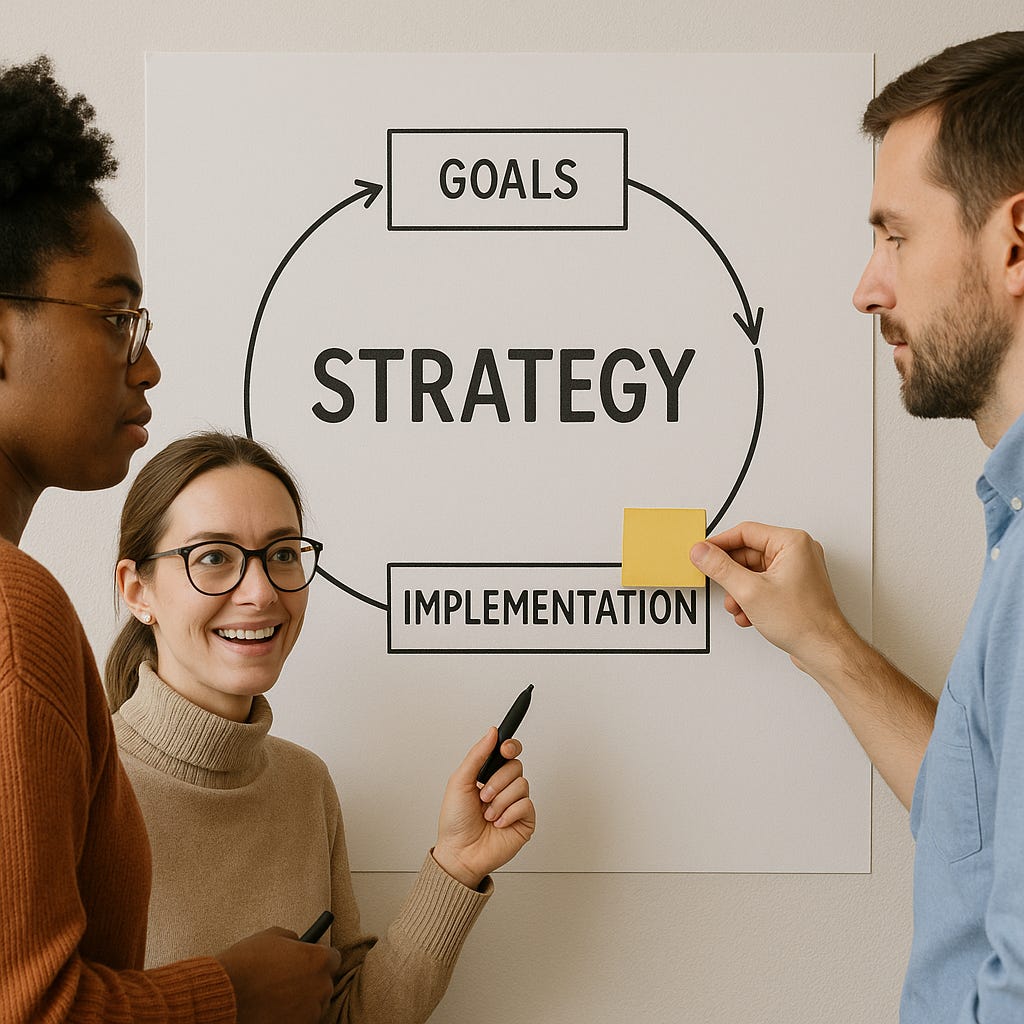Take some time to self-improve...
...I've put together a few articles that'll superpower you and your teams
Morning strat bite readers!
This week I’ve been looking at how individuals and groups can use some frameworks to become better at work.
From top to bottom they talk about expanding first your strategic thinking, second your ability to prioritise and make decisions, and third your ability to use conflict positively.
Hope you enjoy!
Prompt: “Please can you generate an image of a person or team using a framework to self-improve”
How to get better at strategy (🔗)
TL;DR: The author summarises methods for researching, diagnosing, and improving your strategic skillset, aiding you to practice strategy on a organisational, team, or personal level.
Why I cared: While this piece focuses on engineering strategy, I think parallels can be drawn to the work our strategy practice at Valtech does and thus, in addition, making the principles of this piece applicable to most disciplines. Whether your challenge is software related, commercial, or regarding your personal life, the essence of strategy is understanding objectives, laying plans, and measuring progress towards those plans.
The 4 prioritisation jobs and why they matter (🔗)
TL;DR: Prioritisation efforts can be grouped into 4 buckets: efficiency, leverage, autonomy, and support. Mastering how to approach these sensibly is important.
Why it matters: Problems can arise in a multitude of forms: some teams can’t catch their breath; others aren’t making progress on vision; many aren’t empowered decision makers. If we’re honest, most teams we’ve worked in have faced more than one of these concerns at once. Effective prioritisation is being able to sense the plethora of challenges, separate them into distinct issues, and diagnose / treat them accordingly. This article shows you how.
From Friction to Fuel: Harnessing Conflict for Innovation (🔗)
TL;DR: Organisations with structured conflict resolution processes are more creative, engaging, and higher performing. This piece outlines how to leverage conflict for innovation.
Why it’s important: It’s important to be able to respectfully disagree. It prevents echo chambers and promotes psychological safety, employee engagement and business outcomes. This framework details how preparing and hosting ordered sessions, where value is extracted and tensions are mediated is demonstrably more effective. Don’t just take my word for it; the stats show these practices result in 22% reduction in innovation cycle time, 50% faster idea-to-prototype cycles and 27% higher employee engagement.


